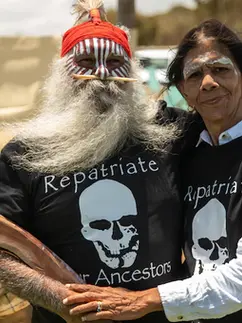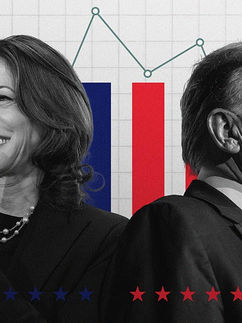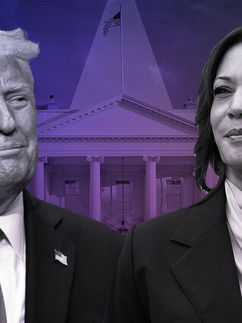Characterising Ron DeSantis
Shajara Khan

The Republican party is facing an identity crisis. Even as swing voters turn away from a Trump-led Republican party, evidenced by the 2022 midterm election results, polling suggests Trump is the most likely candidate to receive the Republican nomination for the 2024 presidential election. While he may find competition in other notable Republican candidates, such as Nikki Haley and Vivek Ramaswathy, one nominee has risen to stratospheric notoriety and looks set to be Trump’s greatest competitor for the nomination: Florida governor, Ron DeSantis. But who is Ron DeSantis and can he abate voters’ concerns about the state of the Republican party and lead it to an electoral college victory in 2024?
The Backstory
DeSantis typifies the quintessential Republican politician; conservative, outspoken, and heavy handed. However, with the rise of Trumpism as the predominant ideological framework in the party – one based on reactionary contrarianism – DeSantis has tended to spend more time emulating Trump rather than solidifying his own political ideology and identity.
His rise has followed an arc typical trajectory for a career politician in the United States. Born to a working class family in Jacksonville, Florida, DeSantis’ childhood and adolescence was indicative of a normal American upbringing. He graduated from Yale with a Bachelor of Arts and started his law degree at Harvard Law School. However, in his second year, he was commissioned by the U.S. Navy as an officer with the Judge Advocate General (JAG). His time as a JAG officer was spent overseeing the conditions of prisons in Iraq and the Guantanamo Bay detention centre. This career in law transitioned into politics as he won his first bid for the United States congress in 2012. DeSantis’ constituents in Florida’s sixth congressional district felt that he reflected their sentiments well enough to elect him to the position in 2014 and again in 2016.
With a raft of congressional victories under his belt, DeSantis set his sights on a more influential position: Senator of Florida. Unfortunately for him, his bid for the senatorship did not yield success, losing the 2016 race to fellow Republican Marco Rubio. However, this loss did little to dissuade DeSantis from higher office, as he switched his target to the position of Governor of Florida. This time he was more successful, winning the gubernatorial election in 2018. As Governor, DeSantis has established himself as a strong leader, if not one bordering on authoritarianism. Despite this, his style was well received, and he has since won reelection comfortably.
A key test for DeSantis' leadership skills as Governor was at the beginning of the COVID-19 pandemic. DeSantis largely opposed federal government COVID-19 guidelines, an approach he justified as vital to protect Florida's economy, one which is heavily reliant on out-of-state tourism. DeSantis committed to the bare minimum of quarantine measures, and even called for a grand jury into the efficacy of COVID vaccines, citing studies that acknowledged the need for further research.
The Campaign
With a relentless ambition, DeSantis has now turned his attention to the most significant role in U.S. politics: the presidency. His campaign has started strong but faces stiff competition from Donald Trump, who is still polling higher as preferred Republican candidate.
For DeSantis to win the nomination, he faces the difficult task of having to appeal to the traditional and Trump-loving Republican base, while also having to differentiate himself enough to convince voters he is the better option.
DeSantis typifies much of what is expected of modern day Republicans. He has been vocal in his opposition to gun control - in spite of the tragic school shooting at a high school in Parkland, Florida in 2018, where 17 students were murdered by a former student. Unsurprisingly, DeSantis received many campaign finance contributions from various pro-gun lobbies in the U.S between 2014 and 2018.
DeSantis has also been vocal of his disdain for migrants from Latin America entering the U.S. from the Southern border with Mexico, even though Florida does not share a land border with Mexico. DeSantis went so far as to take migrants from a detention centre in Texas, and send them to Massachusetts.
More recently, DeSantis has taken on reshaping education policy in Florida to remove any concepts he perceives as antithetical to Republican political ideology. DeSantis has made apparent his aversion to the more progressive topics within the curriculum, such as scholarly work that discusses critical race theory, queer experiences, and Black feminism, as well as references to modern social movements such as BLM.
Similarly, any mention of LGBTQ+ concepts has now been banned through the 'Don't Say Gay' bill. Initially, the bill banned the instruction of LGBTQ+ concepts from K-3, but has recently expanded all the way to the 12th grade, approved by the Florida Board of Education. On the same day, the Florida House of Representatives passed a bill that has now made it a felony to provide gender-affirming care to minors.
These examples highlight the extent to which DeSantis is willing to exert legislative authority over groups he views as contrarian to the Republican worldview he projects. Even during his first international trip as Governor of Florida to Japan and South Korea, DeSantis’ made offhand comments criticising each countries’ COVID-19 responses and suggested they should have followed Florida’s more lax response to COVID-19. Actions such as this demonstrate his commitment to strict political ideology and his narcissistic tendencies.
So can Ron DeSantis become president and succeed in reshaping the Republican party’s reputation away from Trump and into his own image?
Potentially. But first, DeSantis must prove that his leadership style can be cohesive with other world leaders, shifting away from his tendency to be abrasive and stubborn. His public persona has highlighted behaviour that is akin to more overtly authoritarian leaders, which is reliant on a majority who will agree with his policies, and are complacent with his attitude.
Secondly, even if DeSantis wishes to distance himself from Trump, his approach to policymaking is still Trump-like, so too is his attitude towards those he perceives as enemies, like the media. Thus, DeSantis must appeal to swing voters who disliked Trump’s authoritarianism and are desperate for a Republican alternative.
Lastly, DeSantis must rebuild from a disastrous campaign announcement, which has put his bid on the back foot. Instead of an official announcement via press conference, DeSantis opted for a collaboration with Elon Musk on Twitter Spaces. Though he claimed his Twitter Space campaign announcement was watched by “probably 10 million people” – making it the largest livestream in history – it was not. 300,000 people were tuned in to the live broadcast, which was marred by technical difficulties. More than twice as many people tuned to a Buzzfeed livestream to see how many rubber bands were required to explode a watermelon.
Ron DeSantis has a long way to go and many hurdles to clear until he finds himself on the winner’s podium in 2024. Yet despite the challenges he faces, the past decade has demonstrated there are few certainties when it comes to predicting who the Republican presidential nominee will be and who will find themselves in the Oval Office. When it comes to Ron DeSantis’ bid for the Presidency in 2024, ultimately, only time will tell.
Shajara Khan graduated from UNSW with a Master of International Relations and a Bachelor of Arts (Korean Studies). During her master's, she worked on her dissertation analysing how ideology plays a major role in U.S. politics

















Comments